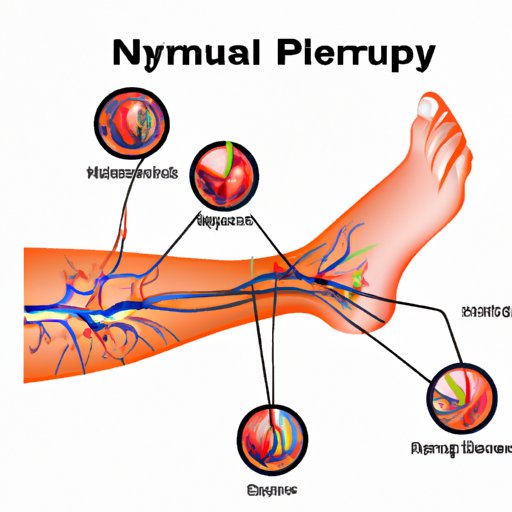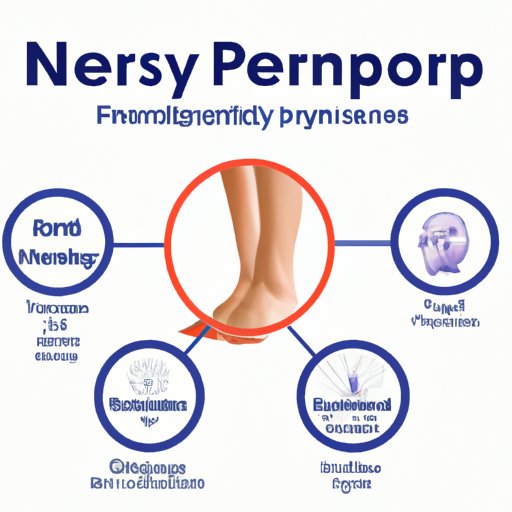

Understanding Neuropathy Symptoms: A Comprehensive Guide
Neuropathy is a condition that affects the nervous system and can cause a range of symptoms, from tingling and numbness to weakness and pain. Understanding neuropathy symptoms is essential to managing the condition and improving quality of life. In this article, we will explore the various signs, types, and causes of neuropathy symptoms.
Overview of Neuropathy Symptoms
Neuropathy symptoms can be broadly defined as any abnormal sensations or motor function caused by damage to the nerves. There are three types of neuropathy: sensory, motor, and autonomic. Sensory neuropathy affects the nerves responsible for sensation, such as touch, heat, and cold. Motor neuropathy affects the nerves responsible for movement, leading to muscle weakness or paralysis. Autonomic neuropathy affects the nerves controlling involuntary functions, such as blood pressure, digestion, and bladder control.
Some common causes of neuropathy include diabetes, chemotherapy, certain medications, infections, and trauma. In some cases, the cause may be unknown.
Noticing the Signs: Identifying Early Neuropathy Symptoms
Early warning signs of neuropathy may include tingling, numbness, and a burning sensation in the affected area. It may also cause muscle weakness and loss of coordination, making it difficult to perform certain tasks. In some cases, symptoms may progress slowly, making it challenging to detect the onset of the condition.
It is essential to monitor any symptoms and seek medical attention as soon as possible. Early detection and treatment can prevent further nerve damage and improve outcomes.
From Tingling to Numbness: A Comprehensive Guide to Neuropathy Symptoms
Neuropathy symptoms can vary greatly depending on the affected nerves. Sensory neuropathy often causes tingling, burning sensations, and a loss of sensation. It may also cause sensitivity to touch or temperature changes. Motor neuropathy may cause weakness, muscle wasting, and cramping. Autonomic neuropathy may cause symptoms such as dizziness, difficulty swallowing, and gastrointestinal problems.
It is worth noting that neuropathy symptoms may affect different parts of the body, including the arms, legs, hands, and feet. It can also cause symptoms that affect many areas of the body, such as common symptoms of diabetic neuropathy.
Exploring the Connection between Neuropathy Symptoms and Underlying Conditions
Neuropathy symptoms can develop as a result of many underlying conditions. Diabetes is a common cause of neuropathy, affecting up to half of all people with diabetes. Other underlying conditions that can cause neuropathy include autoimmune diseases, infections, and exposure to toxins.
Additionally, some treatments, such as chemotherapy, can cause neuropathy as a side effect. Cancer patients who undergo radiation treatment are also at risk for developing neuropathy.
It is essential to manage the underlying condition to prevent further nerve damage and improve outcomes. Proper care, including medications and therapies, can help manage the symptoms of neuropathy and prevent further damage.
Dealing with Neuropathy: Coping Strategies for Managing Symptoms
Managing neuropathy symptoms can be challenging, but several coping strategies can help alleviate discomfort. Some tips include taking pain medication, yoga, physical therapy, and acupuncture. Gentle exercise and walking can also help alleviate symptoms and improve circulation. In certain cases, anti-seizure medications or topical creams may be recommended.
It is important to seek specialized care to get proper treatment. A physician or specialist can help develop a customized plan for managing your symptoms and treating any underlying conditions that may be present.
Preventing Progression: How to Recognize and Treat Neuropathy Symptoms
Preventing the progression of neuropathy symptoms is essential to managing the condition and improving outcomes. Some tips include maintaining a healthy lifestyle, managing blood sugar levels if you have diabetes, and avoiding exposure to toxins.
Physical therapy can also help slow the progression of neuropathy by improving muscle strength and reducing the risk of falls. In some cases, surgery may be necessary to remove pressure on the nerves or repair damaged nerves.
Medications can also be used to manage pain and reduce inflammation caused by neuropathy. These may include over-the-counter pain relievers or prescription medications, such as antidepressants or opioids.
Conclusion
In conclusion, understanding neuropathy symptoms is essential in managing this condition. Early detection and treatment can prevent further nerve damage and improve quality of life. It is important to monitor any changes in sensation or movement and seek medical attention as soon as possible. With proper care and management, people with neuropathy can improve their symptoms and enjoy a better quality of life.





